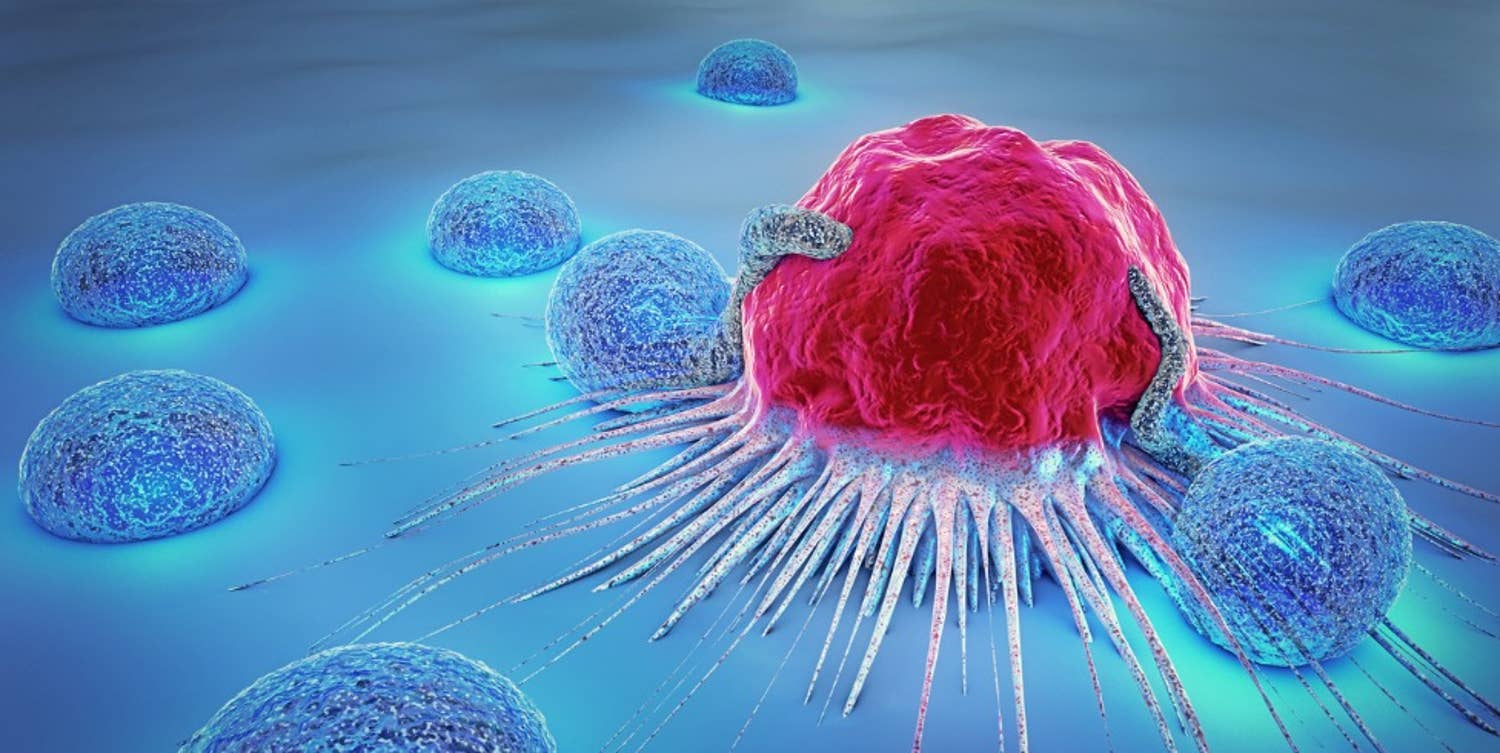Source: Cancer News May 18, 2020 5 years, 8 months, 2 weeks, 4 days, 13 hours, 45 minutes ago
Cancer: Medical and oncology researchers from the University of Eastern Finland have developed a new and promising pharmaceutical compound for the treatment of cancer that inhibits natural amino acids from entering cancer cells. Since amino acids are critical for the growth and division of cancer cells, the new LAT1 inhibitor makes it possible to inhibit the growth of cancer cells.

The research findings was published in the journal Apoptosis.
https://link.springer.com/article/10.1007/s10495-020-01603-7
Numerous oncology researchers around the globe are studying the transport of amino acids into cancer cells, and inhibiting that transport, as a potential treatment for cancer.
Adjunct Professor Kristiina Huttunen's research team at the University of Eastern Finland has focused on the LAT1 transporter protein in particular. LAT1, or l-type amino acid transporter 1, is a membrane protein that transports large amino acids, and it has been found to be over-expressed in many cancer cells. This is why researchers believe that inhibiting the function of LAT1 could be useful in the treatment of various cancers. In breast and prostate cancer, expression of LAT1 has also been associated with a weaker prognosis of survival.
Presently, an LAT1 inhibitor developed in Japan, JPH203, has proceeded to clinical trials.
Professor Huttunen's research group has also developed a novel LAT1 inhibitor that was presented in 2016 in a study published in
Journal of Medicinal Chemistry.
For the recently published further studies in vitro, the LAT1 inhibitor in question was found to be hemocompatible, i.e. safe to be used in systemic circulation. In cancer cells, however, the LAT1 inhibitor induced programmed cell death, apoptosis. The best results were achieved by combining the LAT1 inhibitor with another drug compound, bestatin.
Professor Huttunen said, "We feel that using an LAT1 inhibitor alone isn't an effective approach to treating any cancer, since cancer cells always find an alternative way to take in amino acids or to get rid of drug compounds that have been designed to kill them. It is these various defense mechanisms that make many cancers resistant to drugs. This is why we believe that using a combination of several drug compounds is the most effective way to treat many cancer."
It was observed that amino acids can also enter cells in the form of larger peptides that will be broken down to amino acids by enzymes. Bestatin, however, inhibits the function of these enzymes and, in doing so, also blocks one possible pathway via which amino acids can enter cells.
The research was also the first to show that temporary LAT1 inhibition does not have an effect on the amino acid composition of the brain. The LAT1 transporter protein is abundantly present in the brain and in the blood-brain barrier, as well as in neurons and glials, which are cells that support neurons.
Professor Huttunen's group has carried out extensive research into all of the above. It is thus highly probable that the effects of the LAT1 inhibitor would mainly be targeted
at rapidly-dividing cancer cells, and that unfortunate side effects on the central nervous system could be avoided.
The research was carried out in collaboration with Dr. Magdalena Markowicz-Piasecka at the Medical University of Lodz in Poland. Dr. Markowicz-Piasecka used to work as a postdoctoral researcher in Adjunct Professor Huttunen's group, and she has continued her research on the LAT1 inhibitor in Poland, leading to the publication of these new results.
The researchers say that the LAT1 inhibitor developed at the University of Eastern Finland is an innovation that has potential for further development.
They said, "Our LAT1 inhibitor is reminiscent of the JPH203 inhibitor that has proceeded to clinical trials. However, our inhibitor has a more permanent structure and it doesn't go through similar metabolic reactions that have been observed in JPH203, which could weaken its effect on cancer cells. Our inhibitor is also more selective in binding to LAT1, and not to other transporter proteins, unlike JPH203. This is why I believe that our compound, or any possible future structural derivatives of it, can better target cancer cells and be safer in clinical care."
For the latest on
Cancer research, keep logging to Thailand Medical News
AN URGENT APPEAL: Please help support this website by kindly making a donation to sustain this website and also all in all our initiatives to propel further research: https://www.thailandmedical.news/p/sponsorship
